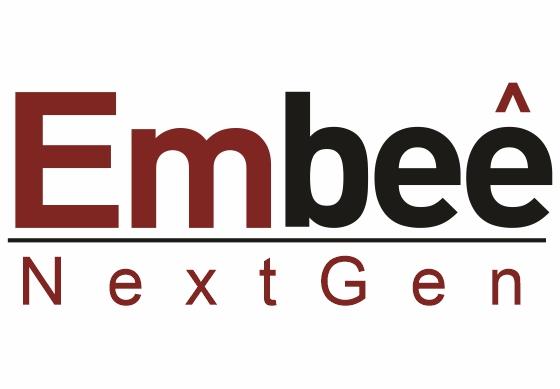The UAE boasts a vibrant and competitive restaurant industry. The success of the industry is primarily driven by a diverse population and an inclination towards unique dining experiences. From bustling food hubs in Dubai to local gems in Abu Dhabi, the culinary scene offers tremendous opportunities for restaurateurs. However, thriving in this dynamic landscape requires robust accounting practices apart from great food.
Just like other businesses, the success of restaurants also depends on effective financial management. Accurate tracking of revenue, costs, and compliance with UAE regulations can spell the difference between profitability and financial strain. For UAE restaurant owners, addressing challenges like fluctuating inventory costs UAE and managing VAT compliance can ensure sustainable growth in a competitive market.
In this article, we’ll touch upon important accounting tips that can help UAE restaurants thrive in the competitive space.
Wish to Streamline your restaurant’s finances and take control of your profits? Embee NextGen’s expert accounting solutions are here to help. Contact us today to simplify your financial management today!
Understanding Restaurant Accounting in the UAE
Restaurant accounting UAE requires navigating unique financial and regulatory landscapes. With the introduction of VAT and a heavy reliance on imported goods, financial management has become more complex for restaurant owners. Beyond basic bookkeeping, accounting in the UAE involves practices designed to ensure compliance, optimize costs, and drive profitability in one of the region’s most competitive markets.
Key accounting concepts like cost of goods sold (COGS), gross profit margin, and break-even analysis are essential for understanding a restaurant’s financial health.
Compliance with UAE-specific regulations, particularly VAT, adds another layer of responsibility. Restaurants must meticulously track revenue and expenses to ensure accurate tax filings. Inaccurate records not only risk fines but can also undermine business decision-making. Maintaining clear, detailed financial statements and leveraging accounting software designed for UAE businesses can help restaurant owners adhere to VAT regulations while confidently planning for growth.
Effective Cost Control in Dubai’s Restaurant Scene
Cost control is a critical factor in running a profitable restaurant in Dubai. Rising rents, labor costs, and premium ingredient prices can quickly eat into profit margins if not managed proactively. Implementing a cost-effective strategy starts with identifying key expense areas and exploring opportunities to reduce wastage.
Strategies like optimizing menu engineering, negotiating with suppliers for better rates, and training staff to minimize errors can make a significant difference. Additionally, monitoring operational expenses through advanced accounting software tailored for restaurants can provide actionable insights, helping owners focus on high-profit items while cutting back on low-performing dishes.
Navigating Fluctuating Inventory Costs UAE
The UAE’s reliance on imported goods means that inventory costs are often subject to price volatility, driven by global supply chain disruptions and currency fluctuations. For restaurants, this can lead to unpredictable expenses, complicating budgeting and financial planning.
To combat these challenges, restaurants must adopt robust inventory tracking systems. Regular audits of stock levels and supplier prices can help identify cost-effective purchasing decisions. Leveraging technology to forecast demand based on sales trends and seasonality can also minimize overstocking or shortages.
Ensuring Compliance with VAT Regulations
Since the introduction of VAT in the UAE, restaurants have faced new financial and administrative responsibilities. VAT is applicable to most goods and services, including food and beverages, making compliance essential for smooth operations. Restaurants must register for VAT, issue tax-compliant invoices, and charge the appropriate rate on taxable items. Failure to comply can result in penalties and audits, impacting the business’s reputation and finances.
To ensure compliance, restaurants should maintain detailed and accurate records of all transactions. Organizing invoices, receipts, and financial documents can simplify the process of filing VAT returns. Leveraging VAT-compliant accounting software can automate tax calculations and ensure timely submissions, reducing errors and administrative burdens. Regularly reviewing VAT regulations also helps to stay updated with any changes in the law.
Labor Cost Management
Labor is often one of the largest expenses for restaurants in the UAE. Efficient labor cost management can significantly enhance profitability while maintaining service quality. Start by creating detailed schedules that align with peak business hours, ensuring optimal staffing levels without overburdening payroll. Investing in staff training can boost productivity and reduce operational errors, further optimizing labor costs.
Balancing competitive wages with overall payroll expenses can help to attract and retain skilled employees in a competitive market. Offering performance-based incentives and cross-training staff to handle multiple roles can improve efficiency while keeping costs under control. Implementing time-tracking tools can also help monitor hours worked, avoiding unnecessary overtime and ensuring fair compensation practices.
Leveraging Technology for Financial Management
Technology has revolutionized financial management in the restaurant industry. Accounting software tailored for restaurants can streamline operations by tracking expenses, monitoring cash flow, and automating payroll. These tools help restaurant owners focus on growth instead of getting bogged down in manual bookkeeping.
Integrating point-of-sale (POS) systems with accounting platforms offers real-time data on sales, inventory, and customer preferences. This integration provides a holistic view of the business, enabling owners to make informed decisions quickly. Advanced analytics from these systems can help identify top-selling menu items, track seasonal trends, and optimize pricing strategies, enhancing overall profitability.
To Conclude
Managing a successful restaurant in the UAE requires more than culinary expertise; it demands meticulous financial management. From addressing fluctuating inventory costs to ensuring compliance with VAT regulations and managing labor expenses, robust accounting practices form the foundation of sustainable growth.
By adopting well thought-out strategies restaurant owners can enhance financial health and profitability. Embracing these practices not only simplifies day-to-day operations but also equips businesses to thrive in the highly competitive UAE restaurant market.
Ready to transform your restaurant’s accounting into a seamless, profit-driving process? Get in touch with Embee NextGen now and discover how we can help your business grow!
